
The Enchanting Coral Coast of Fiji
The Coral Coast of Fiji is a magnificent stretch of coastline that is renowned for its stunning beaches and vibrant marine life. Located on the southern shores of Fiji's main island, Viti Levu, this beautiful coastal area is a favorite amongst tourists seeking both relaxation and adventure. The Coral Coast offers a perfect blend of traditional Fijian culture and natural beauty, making it an ideal destination for travelers of all ages. One of the main attractions of the Coral Coast is its breathtaking coral reefs, which are a paradise for snorkelers and divers. The clear waters provide excellent visibility, allowing you to explore the colorful underwater world teeming with tropical fish, sea turtles, and other marine creatures. For those who prefer to stay on land, the beaches here are equally enticing, with soft white sands and swaying palm trees offering a picturesque setting for sunbathing or a leisurely stroll. Beyond the beaches and reefs, the Coral Coast is home to lush rainforests, charming villages, and historic sites. You can visit the Sigatoka Sand Dunes National Park to see ancient archaeological sites or take a river safari along the Sigatoka River to experience traditional Fijian village life. The warm and welcoming locals add to the charm of this destination, ensuring that your visit to the Coral Coast will be a memorable one.
Local tips in Coral Coast
- Bring reef-safe sunscreen to protect the coral reefs while enjoying the waters.
- Visit the local markets in Sigatoka for fresh produce and handmade crafts.
- Hire a local guide for your river safaris to gain deeper insights into Fijian culture.
- Pack lightweight clothing and insect repellent for exploring the rainforests.
- Respect local customs and traditions, especially when visiting villages.
The Enchanting Coral Coast of Fiji
The Coral Coast of Fiji is a magnificent stretch of coastline that is renowned for its stunning beaches and vibrant marine life. Located on the southern shores of Fiji's main island, Viti Levu, this beautiful coastal area is a favorite amongst tourists seeking both relaxation and adventure. The Coral Coast offers a perfect blend of traditional Fijian culture and natural beauty, making it an ideal destination for travelers of all ages. One of the main attractions of the Coral Coast is its breathtaking coral reefs, which are a paradise for snorkelers and divers. The clear waters provide excellent visibility, allowing you to explore the colorful underwater world teeming with tropical fish, sea turtles, and other marine creatures. For those who prefer to stay on land, the beaches here are equally enticing, with soft white sands and swaying palm trees offering a picturesque setting for sunbathing or a leisurely stroll. Beyond the beaches and reefs, the Coral Coast is home to lush rainforests, charming villages, and historic sites. You can visit the Sigatoka Sand Dunes National Park to see ancient archaeological sites or take a river safari along the Sigatoka River to experience traditional Fijian village life. The warm and welcoming locals add to the charm of this destination, ensuring that your visit to the Coral Coast will be a memorable one.
When is the best time to go to Coral Coast?
Iconic landmarks you can’t miss
Garden of the Sleeping Giant
Explore the stunning Garden of the Sleeping Giant in Fiji – a botanical haven filled with vibrant orchids and lush landscapes inviting you to unwind.
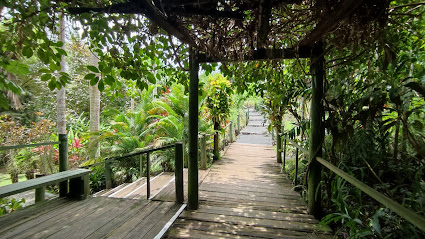
Kula WILD Adventure Park
Explore Kula WILD Adventure Park, where thrilling rides meet Fijian wildlife in a captivating tropical setting that delights visitors of all ages.
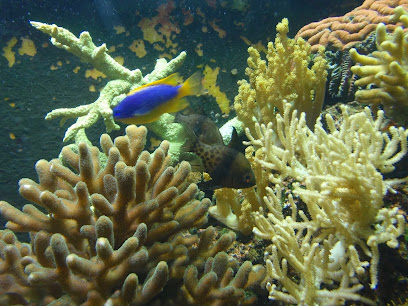
Thurston Gardens
Experience the lush beauty of Thurston Gardens, a serene botanical garden in Suva, Fiji, perfect for relaxation, nature walks, and cultural exploration.
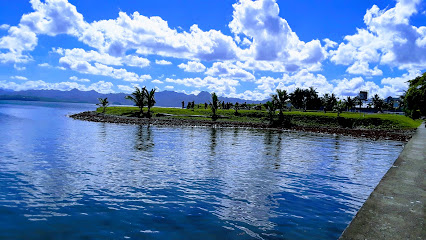
Koroyanitu National Park
Explore the breathtaking landscapes and rich cultural heritage of Koroyanitu National Park, a true gem in Fiji's natural wonders.
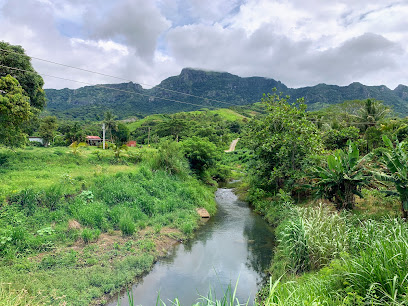
Coral Coast Fiji
Experience the serene beauty of Coral Coast Fiji, a hidden gem with stunning beaches, vibrant reefs, and rich cultural experiences.
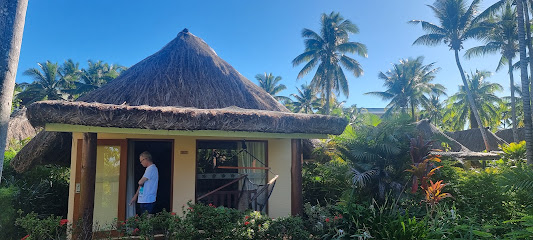
Tavuni Hill Fort
Discover the historical significance and breathtaking views at Tavuni Hill Fort, an iconic landmark in Fiji's Naroro region.
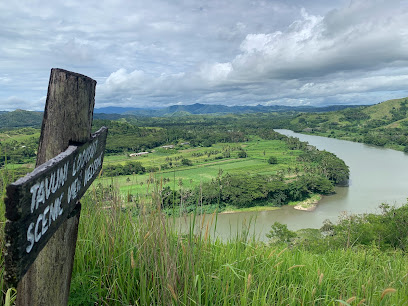
Coral Coast Fishing Charters
Explore the breathtaking waters of Fiji with Coral Coast Fishing Charters, where fishing and adventure await in a stunning tropical paradise.
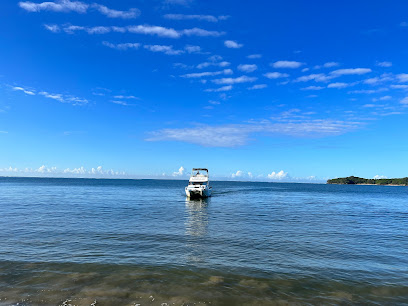
Naihehe Cave
Journey into the heart of Fiji's cultural and historical essence at Naihehe Cave, a captivating landmark rich in ancient stories and natural beauty.
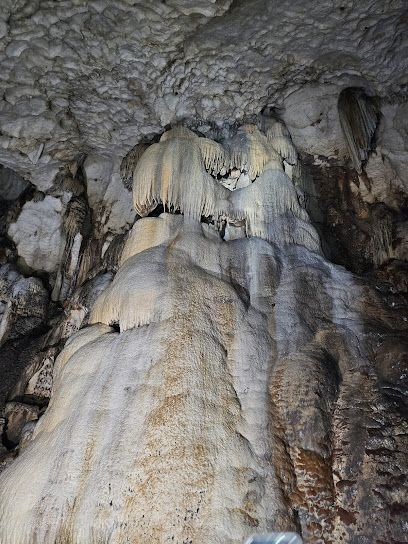
Coral Coast Adventures (Fiji) Limited
Experience the breathtaking beauty of Fiji through thrilling adventures with Coral Coast Adventures, from jet skiing to snorkeling and cultural explorations.
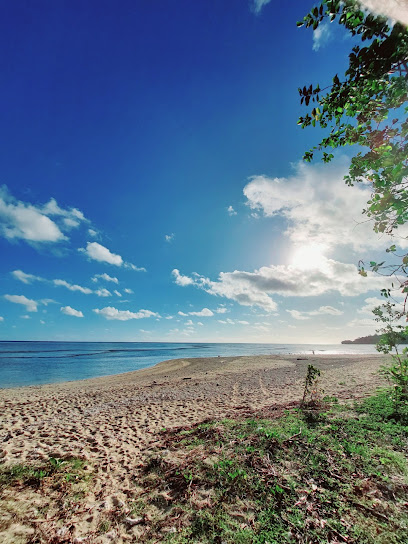
Vunisese bay , Coral Coast , Fiji Islands
Discover the serene beauty of Vunisese Bay in Fiji, a perfect destination for relaxation, cultural experiences, and breathtaking marine adventures.

Unmissable attractions to see
Lawaqa Park
Experience the heart of Fijian sports and community at Lawaqa Park in Sigatoka, a vibrant hub for rugby, recreation, and local culture.
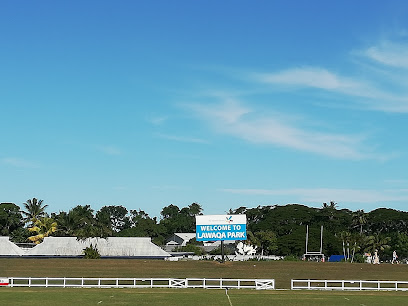
Iconic Tours Fiji- Local Fiji Tours/Transfers/ Island Day Cruises /Shore Excursion / Cultural Tours/ Airport taxi
Explore Fiji's breathtaking landscapes, vibrant culture, and thrilling adventures with Iconic Tours Fiji – your ultimate travel companion.
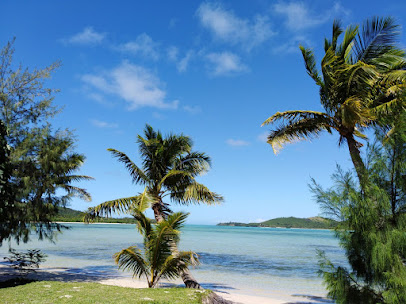
Shri Radha Krishna Temple
Discover a spiritual haven at the Shri Radha Krishna Temple in Sigatoka, Fiji, with vibrant colors, serene beauty, and rich cultural experiences.
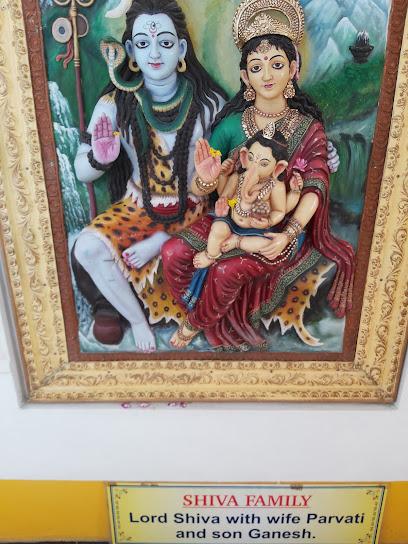
Hydro Sports Fiji (Shangri-La)
Experience thrilling water sports and create unforgettable memories at Hydro Sports Fiji, located in the beautiful Shangri-La Fijian Resort & Spa.
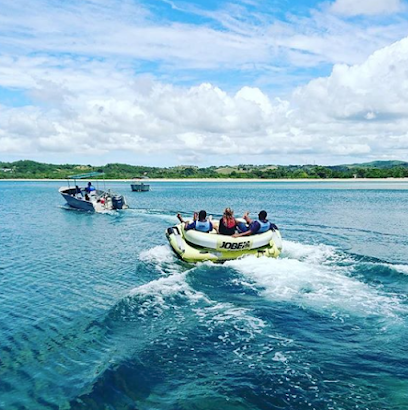
FIJI CORAL COAST HORSERIDING ADVENTURES
Discover Fiji's Coral Coast on horseback: Guided tours for all levels, scenic landscapes, and cultural immersion in Tagaqe.
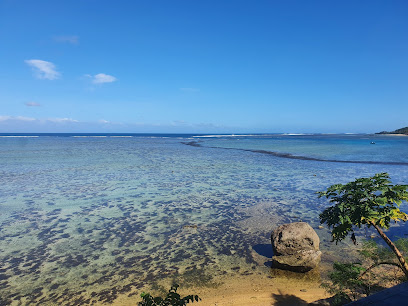
Essential places to dine
Sitar Indian & Thai Restaurant, Korotogo
Experience the best of Indian and Thai cuisine at Sitar Indian & Thai Restaurant in Korotogo – where every dish tells a story.
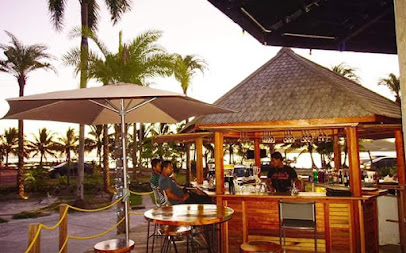
Craig's Place Diner FIJI
Discover authentic Fijian cuisine at Craig's Place Diner along Coral Coast – where every meal is a taste of paradise.
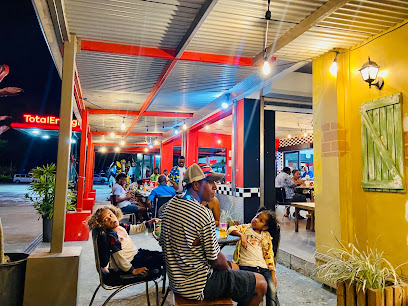
Beach Bar & Grill, Fijian Thai & French Restaurant
Experience exquisite Fijian, Thai & French cuisine at Beach Bar & Grill in Sigatoka—where every meal is complemented by stunning ocean sunsets.
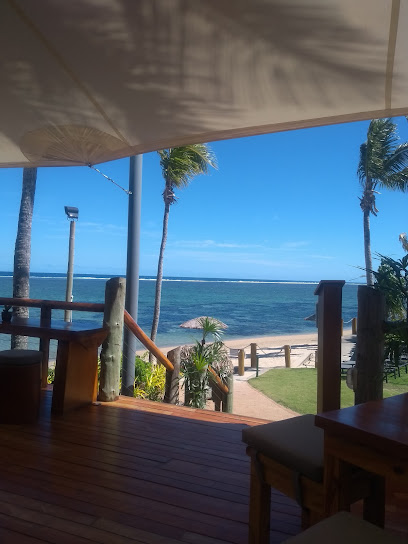
Crab Shack Fiji
Experience fresh seafood with stunning ocean views at Crab Shack Fiji in Korotogo - a must-visit culinary destination for travelers.
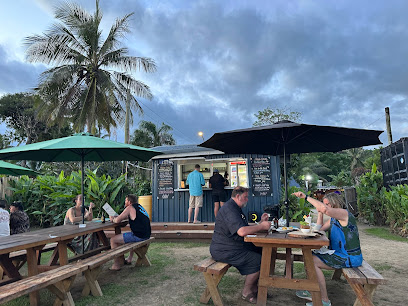
Sundowner Bar & Grill
Experience unparalleled dining at Sundowner Bar & Grill in Fiji—where breathtaking views meet exquisite cuisine.
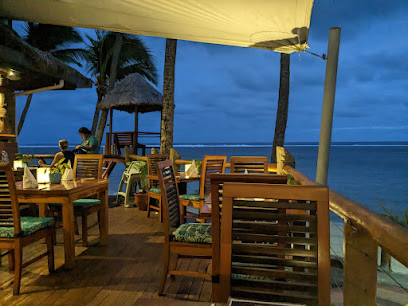
Cuppabula Cafe & Bar (Tappoo)
Discover the flavors of Fiji at Cuppabula Cafe & Bar in Sigatoka Valley - where local cuisine meets breathtaking views.
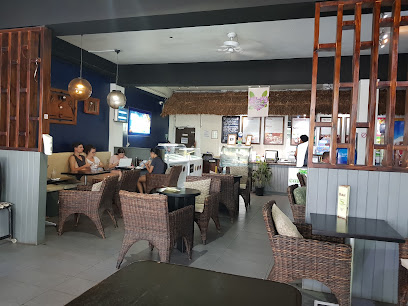
Kanu Gastropub Suva
Discover Kanu Gastropub in Suva - where Fijian flavors meet global cuisine in a cozy setting.
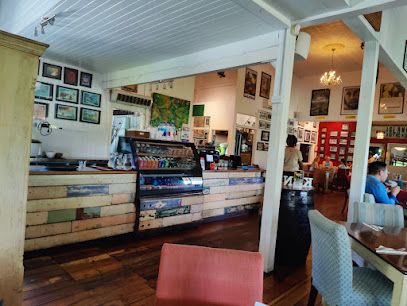
Shivas Wine & Dine
Discover exquisite dining at Shivas Wine & Dine in Sigatoka, where local flavors meet international cuisine in a vibrant atmosphere.
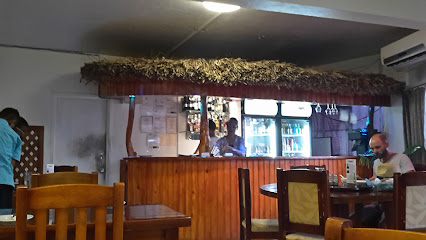
The Junction Cafe and Restaurant
Experience authentic Chinese flavors at The Junction Cafe and Restaurant on Fiji's stunning Coral Coast.
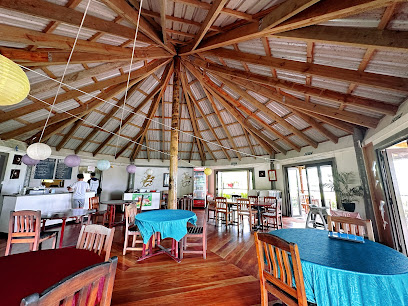
The Tipsy Italian (FIJI)
Experience authentic Italian flavors at The Tipsy Italian in Fiji, where every pizza is crafted with love amidst stunning coastal views.
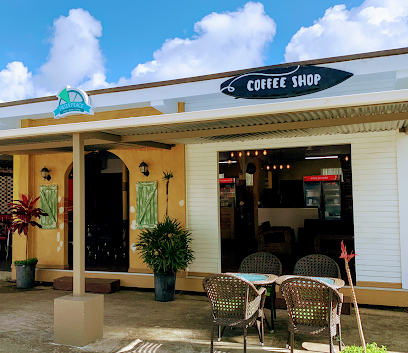
Flying Fin Restaurant n' Bar Fiji
Experience exquisite local cuisine at Flying Fin Restaurant n' Bar Fiji—where fresh seafood meets stunning ocean views on Coral Coast.
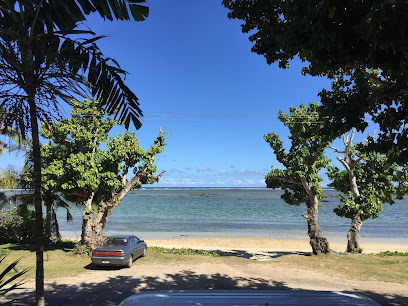
INDIANA CURRY HOUSE & BAR
Experience authentic Indian flavors at Indiana Curry House & Bar in Suva – where every dish tells a story.
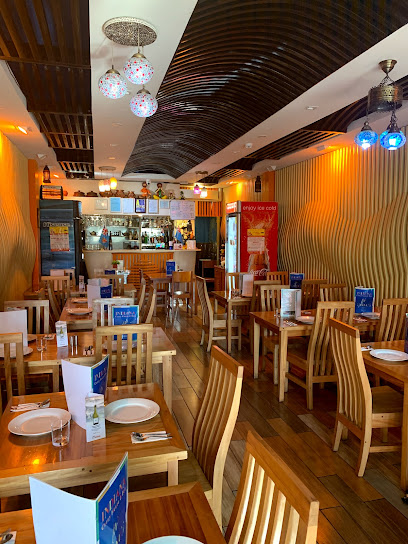
Ocean Terrace Restaurant at Bedarra Beach Inn
Experience exquisite Fijian cuisine with breathtaking ocean views at Ocean Terrace Restaurant on Coral Coast.
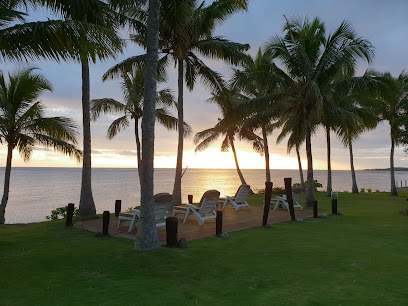
Wicked Walu
Discover Wicked Walu: A premier restaurant on Fiji's Coral Coast serving exquisite seafood and local delicacies with stunning ocean views.
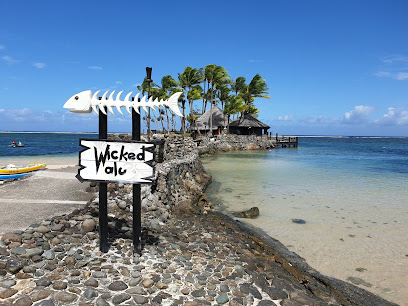
Sinbad Pizza
Discover Sinbad Pizza on Coral Coast: Enjoy delicious pizzas with stunning ocean views in a tropical paradise.
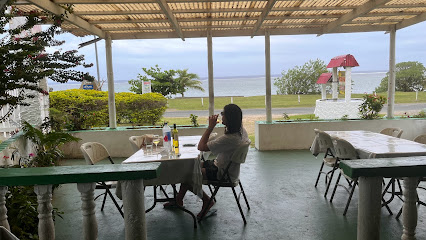
Markets, malls and hidden boutiques
My Fiji Store
Discover the essence of Fiji at My Fiji Store, where unique gifts, exquisite books, and gourmet chocolates await every traveler.
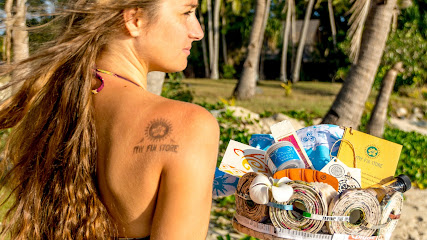
Tappoo Sigatoka Shop
Discover a world of shopping at Tappoo Sigatoka Shop, where Fijian culture meets modern retail in a vibrant atmosphere.
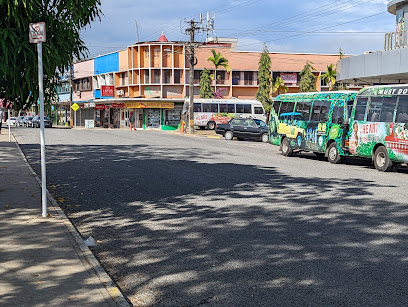
Maui Bay Supermarket
Discover local flavors and essentials at Maui Bay Supermarket, your go-to spot for groceries and liquor on Fiji's stunning Coral Coast.
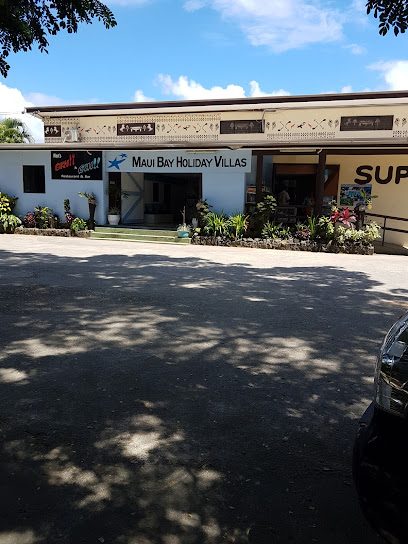
Jack's
Explore the vibrant culture of Fiji at Jack's in Sigatoka, where local apparel and unique souvenirs await every traveler.
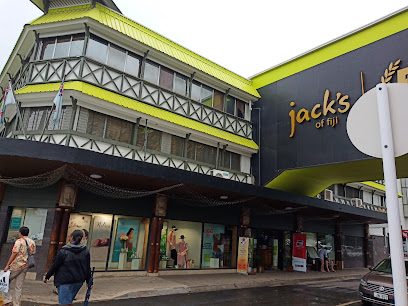
Korotogo Souvenir Centre
Explore the heart of Fijian culture at Korotogo Souvenir Centre, your destination for authentic gifts and local crafts.
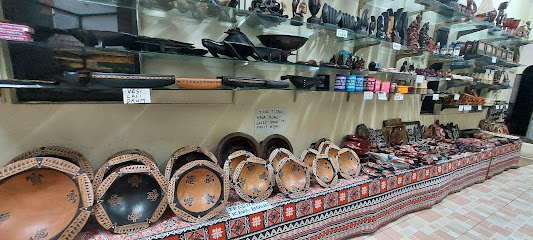
Coral Coast Supermarket
Experience the heart of Fiji at Coral Coast Supermarket, where local flavors meet everyday essentials in a tropical paradise.

Jack's of Fiji - Outrigger
Explore Jack's of Fiji - Outrigger for a unique shopping experience filled with local clothing, beach accessories, and memorable gifts in the heart of Korotogo.
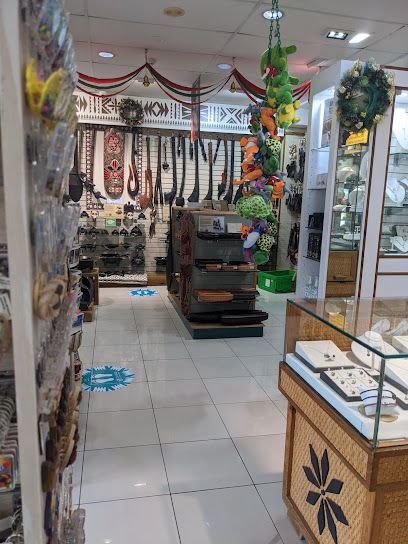
Korolevu Shopping Center
Discover the convenience of Korolevu Shopping Center in Sigatoka, offering essentials and local treasures for every traveler.
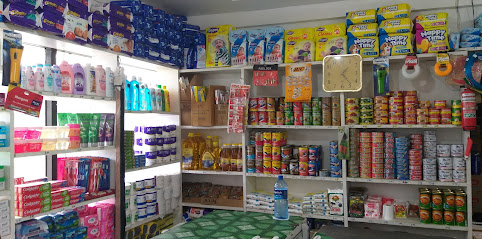
Punam Ashika's Shopping Center
Explore a vibrant selection of authentic Indian groceries and spices at Punam Ashika's Shopping Center in Sigatoka, Fiji.
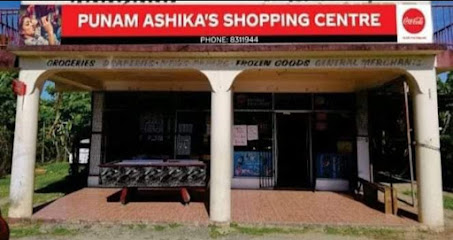
Kasabias Variety Store
Discover unique home goods at Kasabias Variety Store in Sigatoka, a local treasure for tourists seeking authentic Fijian souvenirs.

S.V.N Sale Shop
Shop unique Fijian clothing at S.V.N Sale Shop in Sigatoka, where vibrant style meets affordability in a friendly atmosphere.

R. Billimoria & Sons
Explore R. Billimoria & Sons in Sigatoka for quality clothing, custom tailoring, and a unique shopping experience that reflects Fijian culture.
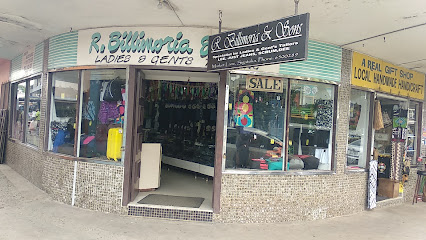
Navula shopping centre
Experience the vibrant Navula Shopping Centre in Sigatoka, where shopping, dining, and entertainment await you in a beautiful Fijian setting.
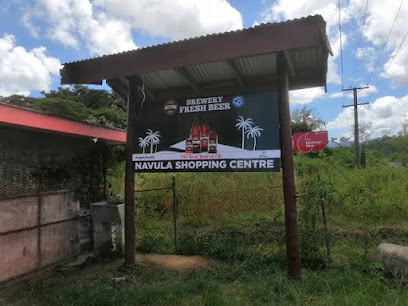
Maro
Discover the vibrant charm of Maro in Sigatoka, where local crafts and Fijian culture come alive in a warm and welcoming store atmosphere.

Sigatoka Central Store
Explore the vibrant culture of Fiji through unique fashion accessories at Sigatoka Central Store, a local gem in Sigatoka.

Essential bars & hidden hideouts
Craig's Place Diner
Indulge in authentic Fijian flavors at Craig's Place Diner, a must-visit culinary gem on the Coral Coast of Sigatoka.
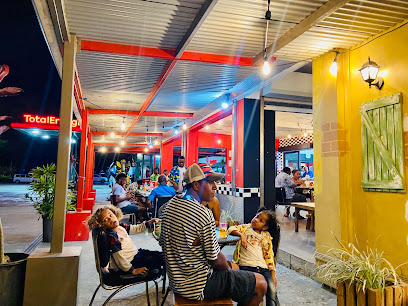
Craig's Place Diner FIJI
Experience authentic Fijian dining at Craig's Place Diner, where local flavors and warm hospitality meet stunning coastal views.
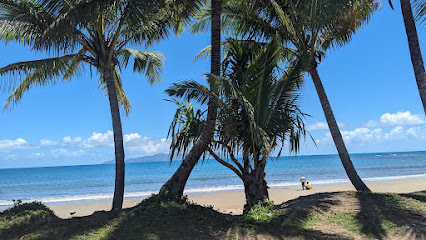
Ice Bar
Discover a unique frosty nightlife experience at Ice Bar Nadi, where refreshing drinks and a vibrant atmosphere await every visitor.
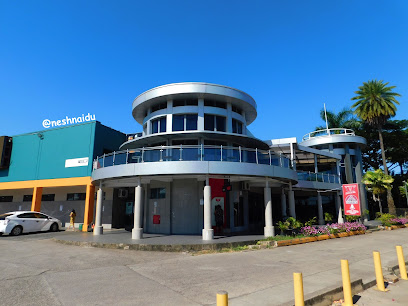
Beach Bar & Grill, Fijian Thai & French Restaurant
Experience an unforgettable blend of Fijian, Thai, and French cuisine at Beach Bar & Grill, nestled on the stunning Sunset Strip in Korotogo.
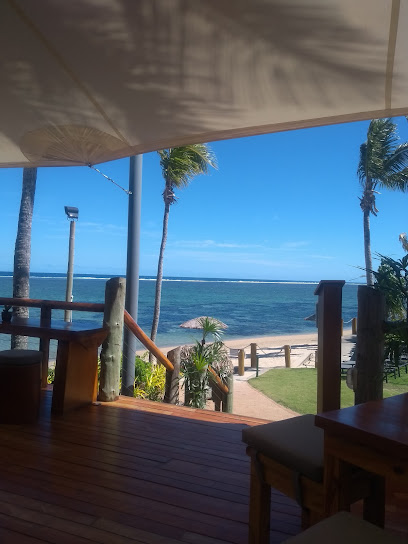
Crab Shack Fiji
Experience unforgettable seafood dining at Crab Shack Fiji, where culinary excellence meets breathtaking coastal views along the Coral Coast.
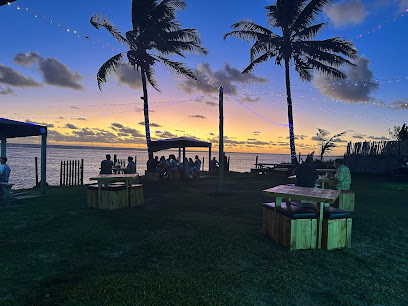
Sundowner Bar & Grill
Experience the exquisite flavors of Fiji at Sundowner Bar & Grill, where every meal is a celebration by the sea.
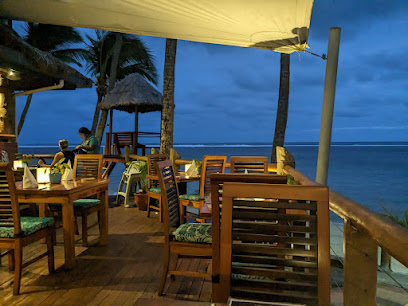
The Beach Club Wailoaloa
Experience the flavors of the tropics at The Beach Club Wailoaloa, where stunning beach views and delicious grilled dishes await you.
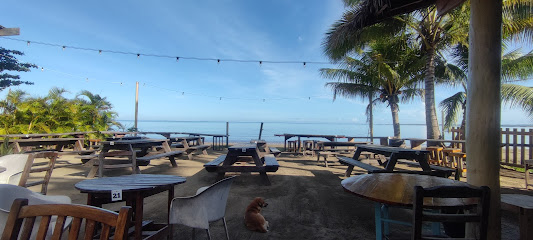
Flying Fin Restaurant n' Bar Fiji
Experience the vibrant flavors of Fiji at the Flying Fin Restaurant n' Bar, a must-visit culinary destination on the Coral Coast.
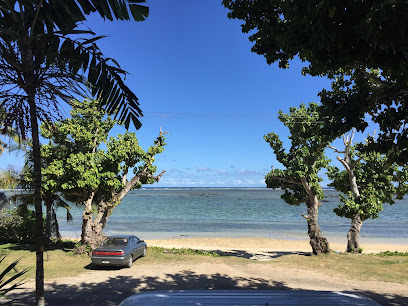
Opium Bar Fiji
Discover the vibrant nightlife at Opium Bar in Suva, Fiji, where cocktails, music, and fun come together for an unforgettable evening.
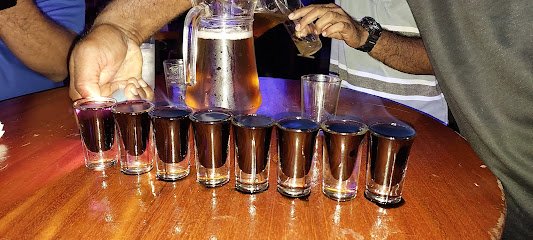
Ocean Terrace Restaurant at Bedarra Beach Inn
Discover the exquisite dining experience at Ocean Terrace Restaurant with breathtaking ocean views and a diverse menu, perfect for all tastes.
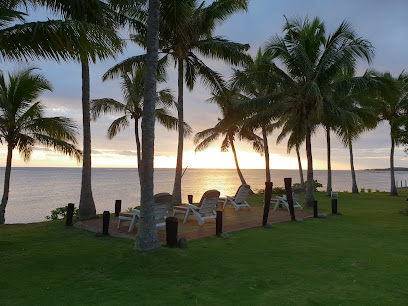
Legends Sports Bar and Restaurant
Discover the vibrant atmosphere of Legends Sports Bar and Restaurant in Nadi, Fiji, where delicious food meets exhilarating entertainment.
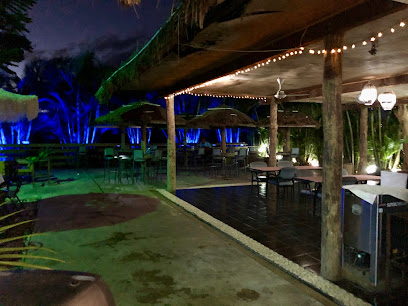
The Hive
Discover The Hive, Nadi's vibrant bar where refreshing drinks and lively atmosphere create unforgettable nights.
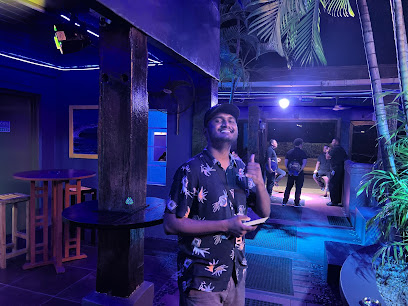
The Dogfather Bar
Discover the vibrant nightlife at The Dogfather Bar in Suva, where refreshing drinks and a lively atmosphere await every visitor.
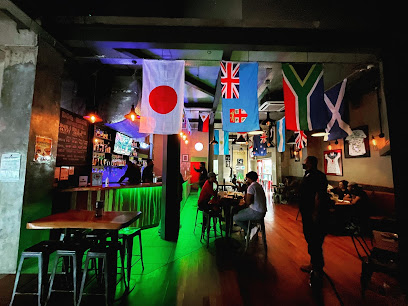
O'Reilly's Bar Suva
Experience the vibrant nightlife at O'Reilly's Bar in Suva, where great drinks and lively music await in a friendly atmosphere.
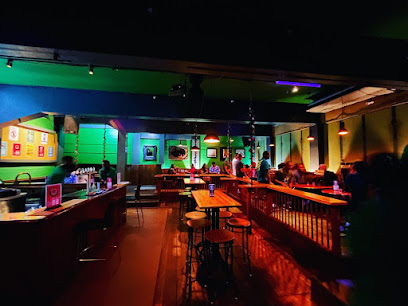
Local Phrases about Coral Coast
-
- HelloBula
[Boo-lah] - GoodbyeMoce
[Moe-they] - YesIo
[Ee-oh] - NoSega
[Sing-ah] - Please/You're welcomeVinaka
[Vee-nah-kah] - Thank youVinaka vakalevu
[Vee-nah-kah vah-kah-lay-voo] - Excuse me/SorryTulou
[Too-low] - How are you?Yadra vinaka?
[Yahn-drah vee-nah-kah] - Fine. And you?Vinaka. Iko?
[Vee-nah-kah. Ee-koh?] - Do you speak English?Ko sa vosa vakaviti?
[Koh sah voh-sah vah-kah-vee-tee] - I don't understandAu sega ni kila
[Ow sing-ah nee kee-lah]
- HelloBula
-
- I'd like to see the menu, pleaseAu vinakata mada me mai vakavo
[Ow vee-nah-kah-tah mah-dah may my vah-kah-voh] - I don't eat meatAu sega ni kana isau
[Ow sing-ah nee kah-nah ee-sow] - Cheers!Bula!
[Boo-lah!] - I would like to pay, pleaseAu vinakata mada me saumi
[Ow vee-nah-kah-tah mah-dah may sah-oo-me]
- I'd like to see the menu, pleaseAu vinakata mada me mai vakavo
-
- Help!Veivuke!
[Veh-ee-voo-kay] - Go away!Lako yani!
[Lah-koh yah-nee] - Call the Police!Vocia na Police!
[Voh-thee-ah nah Police] - Call a doctor!Vocia e dua na dokita!
[Voh-thee-ah ay doo-ah nah doh-key-tah] - I'm lostAu sa loku
[Ow sah low-koo] - I'm illAu sa rarawa
[Ow sah rah-rah-wah]
- Help!Veivuke!
-
- I'd like to buy...Au vinakata me voli...
[Ow vee-nah-kah-tah may voh-lee] - I'm just lookingAu raica ga
[Ow rye-thah ngah] - How much is it?E vica ga?
[Ay vee-thah ngah] - That's too expensiveE levu ga
[Ay lay-voo ngah] - Can you lower the price?O rawa beka me vaka lailai?
[Oh rahn-wah beh-kah may vah-kah lie-lie]
- I'd like to buy...Au vinakata me voli...
-
- What time is it?Ei cava na gauna?
[Ay thah-vah nah gah-oo-nah] - It's one o'clockE dua ga
[Ay doo-ah ngah] - Half past (10)Vei lailai na toka
[Vay lie-lie nah toh-kah] - MorningYabaki
[Yah-bah-kee] - AfternoonYasovi
[Yah-soh-vee] - EveningYalomalua
[Yah-loh-mah-loo-ah] - YesterdayNakabukabu
[Nah-kah-boo-kah-boo] - TodayNaudua
[Now-doo-ah] - TomorrowNi sa mai
[Nee sah my] - 1Dua
[Doo-ah] - 2Rua
[Roo-ah] - 3Tolu
[Toh-loo] - 4Va
[Vah] - 5Lima
[Lee-mah] - 6Ono
[O-noh] - 7Vitu
[Vee-too] - 8Walubu
[Wah-loo-boo] - 9Ciwa
[Thee-wah] - 10Sikeni
[See-keh-nee]
- What time is it?Ei cava na gauna?
-
- Where's a/the...?E vei na...
[Ay vay nah] - What's the address?E vei na ituvatu?
[Ay vay nah ee-too-vah-too] - Can you show me (on the map)?O rawa beka me vakaraitaka...
[Oh rahn-wah beh-kah may vah-kah-rye-tah-kah] - When's the next (bus)?E vei na mataka...
[Ay vay nah mah-tah-kah] - A ticket (to ....)E dua na tikiti (ki ...)
[Ay doo-ah nah tee-kee-tee kee]
- Where's a/the...?E vei na...
History of Coral Coast
-
The Coral Coast has been inhabited for over 3,500 years, with the arrival of the first Polynesian settlers. These early inhabitants established communities and thrived on the rich marine and terrestrial resources of the area.
-
In the late 18th century, European explorers, including Captain James Cook, began arriving in Fiji. Their encounters with the indigenous Fijians marked the beginning of significant cultural and societal changes. This period also saw the introduction of new goods and ideas that would influence the region for decades to come.
-
The early 19th century brought the arrival of Christian missionaries to the Coral Coast. They played a pivotal role in the region, converting many locals to Christianity and establishing schools and churches. This period marked a dramatic shift in the social and cultural landscape of the Coral Coast.
-
Fiji became a British colony in 1874, and the Coral Coast was no exception to the sweeping changes that followed. The colonial administration introduced new agricultural practices, infrastructure developments, and economic policies that shaped the modern identity of the region.
-
During World War II, the Coral Coast played a strategic role due to its geographical location. The area saw the construction of military installations and airstrips, which brought both challenges and opportunities for the local population. The wartime infrastructure developments laid the groundwork for post-war tourism.
-
The mid-20th century marked the beginning of the Coral Coast's transformation into a premier tourist destination. The establishment of resorts and tourist facilities capitalized on the area's natural beauty and historical sites, attracting visitors from around the world. This period saw significant economic growth and cultural exchange.
-
In recent decades, there has been a renewed focus on preserving and celebrating the rich cultural heritage of the Coral Coast. Efforts have been made to promote traditional Fijian arts, crafts, and customs, ensuring that the unique cultural identity of the region is maintained alongside its tourism industry.
Coral Coast Essentials
-
The Coral Coast is located on the southern coast of Viti Levu, the largest island in Fiji. The nearest international airport is Nadi International Airport, which is approximately a 1.5 to 2-hour drive from the Coral Coast. You can reach the Coral Coast by hiring a taxi, booking a private transfer, or renting a car at the airport. There are also several shuttle bus services that operate between the airport and major resorts on the Coral Coast.
-
Getting around the Coral Coast is relatively easy. Many resorts offer shuttle services to nearby attractions. Taxis are readily available and can be booked through your hotel or hailed on the street. For a more flexible option, consider renting a car. Public buses are also an affordable means of transportation, with routes connecting major towns and attractions along the coast. If you're feeling adventurous, you can also rent bicycles to explore the area at a leisurely pace.
-
The official currency in Fiji is the Fijian Dollar (FJD). Credit cards are widely accepted in hotels, restaurants, and larger shops, but it's advisable to carry cash for smaller establishments and markets. ATMs are available in most towns along the Coral Coast, but it's a good idea to withdraw enough cash before heading to more remote areas. Currency exchange services are available at the airport, banks, and some hotels.
-
The Coral Coast is generally a safe destination for tourists. However, it is advisable to take standard precautions such as avoiding isolated areas at night and safeguarding your belongings. While the Coral Coast does not have specific high-crime areas targeting tourists, always remain vigilant. Use hotel safes for valuables and be cautious of your surroundings, especially in crowded places.
-
In case of emergency, dial 911 for immediate assistance. Hospitals and medical facilities are available in nearby towns such as Sigatoka. It is highly recommended to have travel insurance that covers medical emergencies. For minor health issues, pharmacies are available in most towns where you can purchase over-the-counter medications. Your hotel can also assist in arranging medical help if needed.
-
Fashion: Do dress modestly, especially when visiting villages and religious sites. Avoid wearing revealing clothing. Religion: Do respect local customs and traditions. Remove your hat and shoes when entering a Fijian home or a religious site. Public Transport: Do be respectful and patient when using public transport. Don't eat or drink on buses. Greetings: Do greet people with a friendly 'Bula!' (hello). A handshake is also common. Eating & Drinking: Do try local delicacies and accept food offerings graciously. Don't refuse hospitality, as it is considered impolite.
-
To experience the Coral Coast like a local, visit the vibrant Sigatoka Market where you can buy fresh produce and traditional Fijian goods. Engage with locals, who are known for their friendliness and hospitality. Don't miss visiting the Kula Eco Park, where you can learn about Fiji's native wildlife. For a unique experience, participate in a Kava ceremony, a traditional Fijian social ritual. Also, consider exploring the area's marine life through snorkeling or diving excursions.
Nearby Cities to Coral Coast
-
Things To Do in Savusavu
-
Things To Do in Labasa
-
Things To Do in Ba
-
Things To Do in Nadi
-
Things To Do in Lautoka
-
Things To Do in Suva
-
Things To Do in Nausori
-
Things To Do in Rakiraki
-
Things To Do in Levuka
-
Things To Do in Kolovai
-
Things To Do in Vava'u
-
Things To Do in Ha'apai
-
Things To Do in Nuku'alofa
-
Things To Do in Pangai
-
Things To Do in Foa











